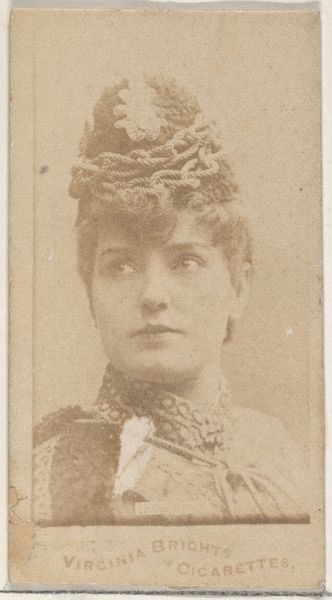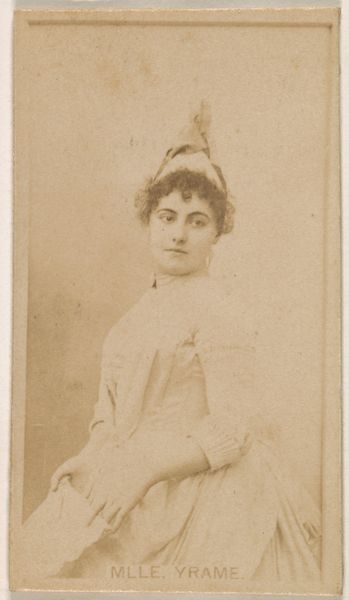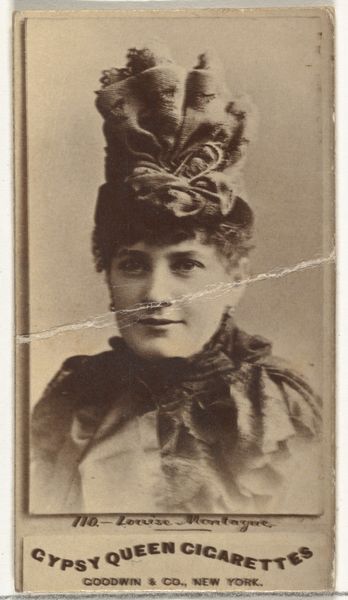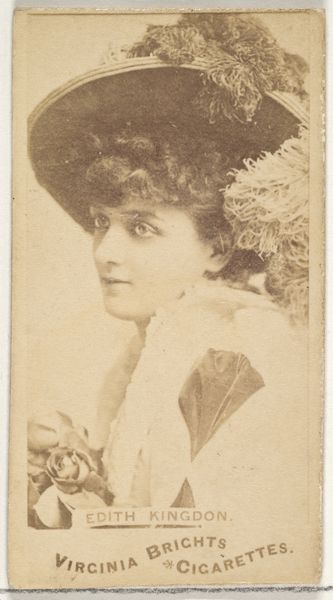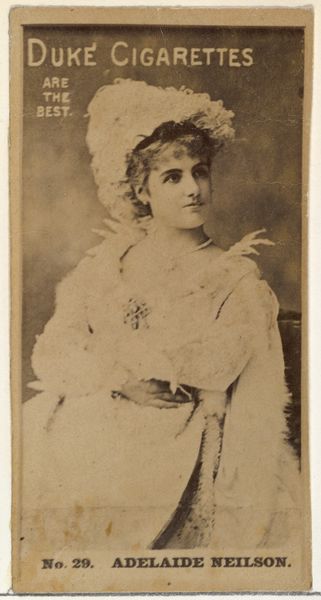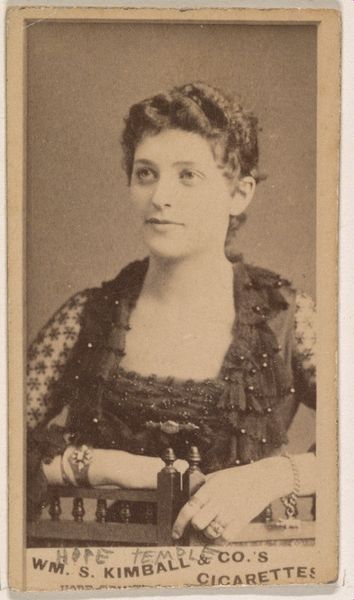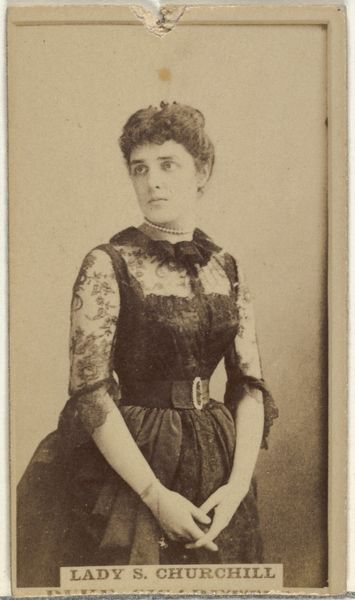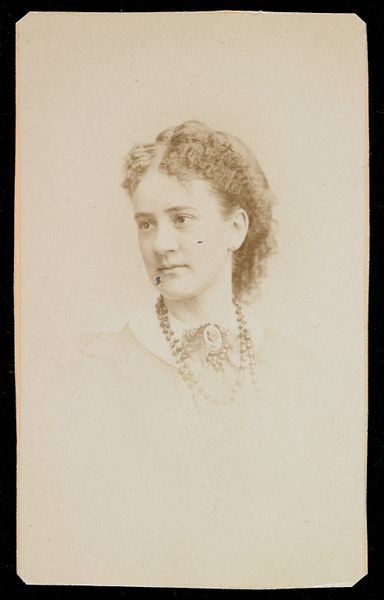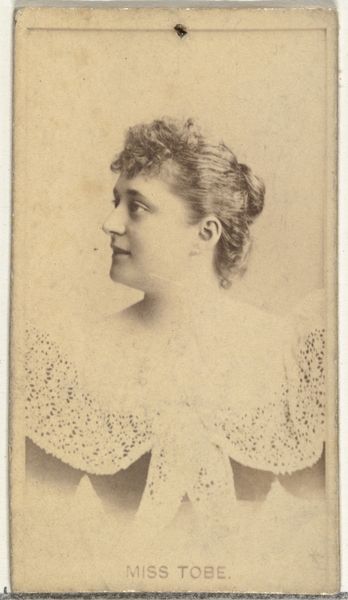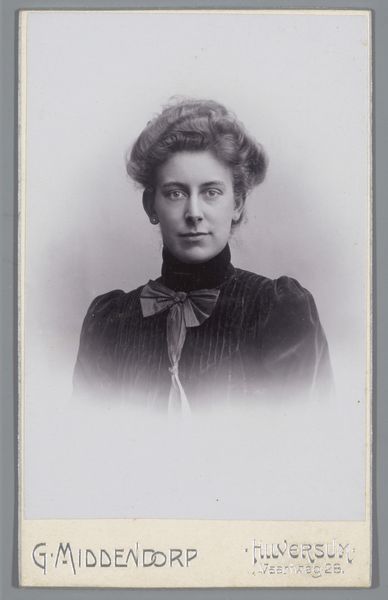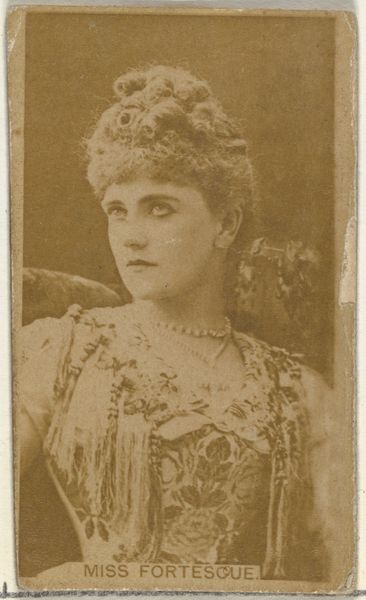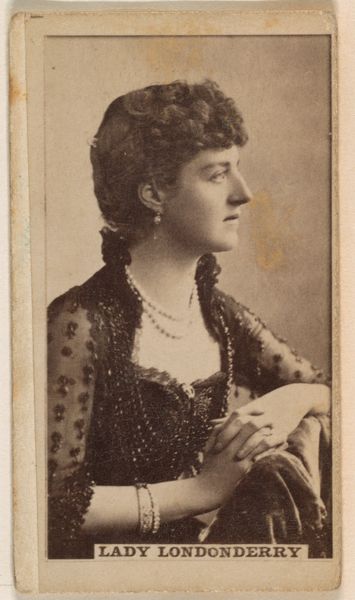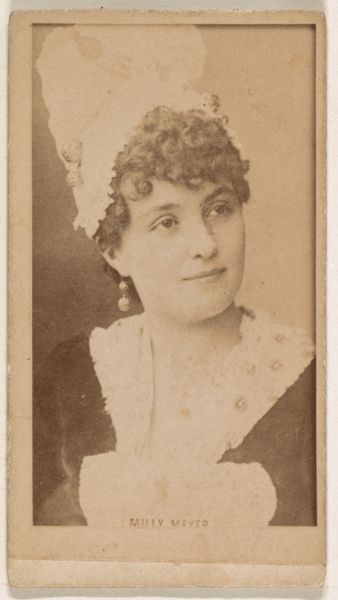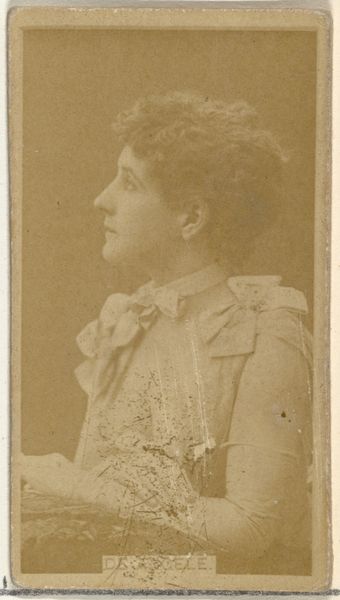
From the Actresses and Celebrities series (N60, Type 2) promoting Little Beauties Cigarettes for Allen & Ginter brand tobacco products 1887
0:00
0:00
drawing, print, photography
#
portrait
#
drawing
# print
#
photography
#
portrait drawing
Dimensions: Sheet: 2 3/8 × 1 1/2 in. (6 × 3.8 cm)
Copyright: Public Domain
Curator: Looking at this small portrait card from 1887, part of the "Actresses and Celebrities" series produced by Allen & Ginter, I am immediately struck by its somber mood. There's an austerity here. What’s your first take? Editor: It feels strangely familiar, doesn't it? It's as though this woman’s gaze has traversed decades and connected directly with our time. Despite the aged sepia tone and faded edges, she remains surprisingly present. But I agree, a somber note for a cigarette promotion seems… odd. Curator: Well, context is key, as always! Allen & Ginter were known for including these cards in their cigarette packs, basically collectible celebrity endorsements to boost sales. The “Little Beauties” name seems crass now, of course, but the cards aimed to create a sophisticated allure around the tobacco products. They marketed a lifestyle more than a product. Editor: I see what you mean. Still, I wonder about her story. I imagine she understood her image would travel in this manner, yet she presents such a formal posture, her expression caught somewhere between compliance and melancholy. She may be resigned, yes? Curator: Perhaps. The technology of photography was still relatively new then. So the performativity was as vital to the photographic ritual as the likeness itself. These were deliberately constructed portraits, carefully posed to present a certain kind of celebrity. What gets me is the flattening of real people to products... it feels so relevant still. Editor: And how poignant that those ephemeral commercial objects are now preserved within museum walls. Thinking about Allen & Ginter as powerful players, not just in the market of nicotine but as molders of cultural representation during the Gilded Age... Curator: Exactly. This single card whispers volumes about commodification, image, and the burgeoning advertising industry. We’ve become so accustomed to celebrity endorsements. This just allows one to see the origin in progress. Editor: It truly does change one's perspective on art and history; both now seem deeply interwoven through these complex relations between consumption and representation. I almost feel sympathetic. Curator: Right? It provokes uncomfortable but necessary self-reflection, especially today when our digital avatars are relentlessly commodified, only serving the commercial purposes of tech titans. The circle continues. Editor: Yes, a humbling perspective for both artist and audience, transcending temporal realms! Thank you, that truly transformed how I now appreciate and ponder the present, seeing its relation to past forms.
Comments
No comments
Be the first to comment and join the conversation on the ultimate creative platform.
